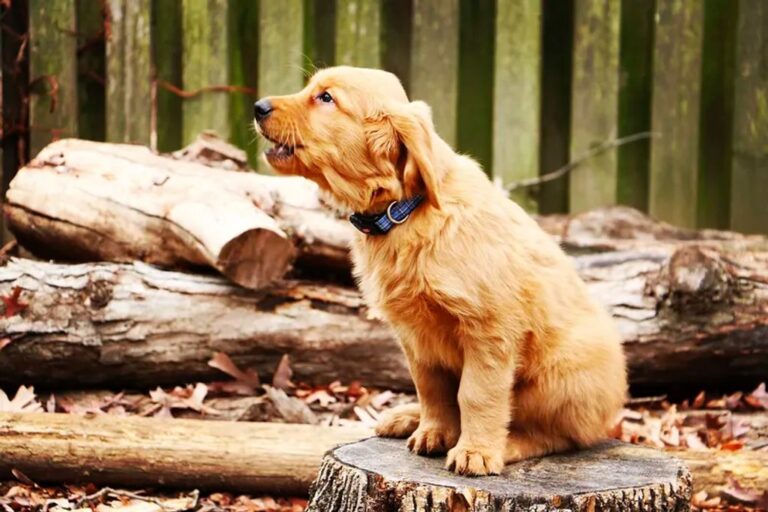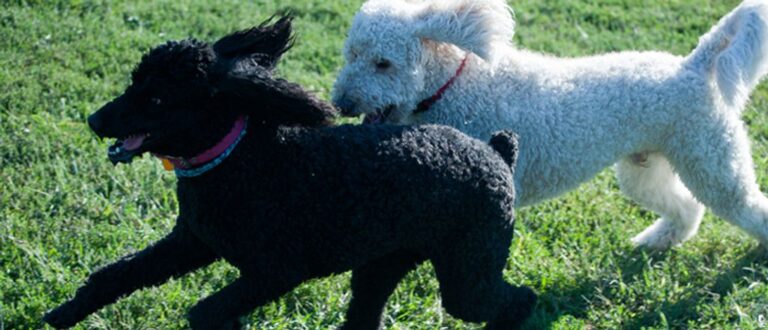Guide: How to Identify a Mixed Breed Dog
Identifying a mixed breed dog can be a fascinating and rewarding experience. Mixed breed dogs, also known as mutts or designer dogs, are unique in their own way. They possess a combination of physical characteristics and behavioral traits from different breeds, making them truly one-of-a-kind. In this guide, we will explore the various aspects of identifying a mixed breed dog, including understanding their genetic makeup, recognizing their physical traits, and even exploring the option of DNA
testing. Whether you’re considering adopting a mixed breed dog or simply curious about the fascinating world of mixed breeds, this guide will provide you with valuable insights and key takeaways.
Key Takeaways
- Mixed breed dogs have a unique combination of physical characteristics and behavioral traits.
- Understanding the genetics of mixed breed dogs can help in identifying their ancestry.
- Physical traits like coat color, size, and facial features can provide clues about a mixed breed dog’s heritage.
- Behavioral traits such as energy level, temperament, and intelligence can also indicate mixed breed ancestry.
- DNA testing can provide more accurate information about a mixed breed dog’s genetic makeup.
What’s in a Mix?

Understanding Mixed Breed Dogs
When it comes to breed identification, mixed breed dogs can be quite fascinating. They are a unique combination of different breeds, resulting in a one-of-a-kind pup. Unlike purebred dogs, mixed breeds don’t have a specific breed standard, which means they can vary in size, appearance, and temperament. This makes them even more special and unpredictable.
Why Mixed Breeds are Unique
When it comes to mixed breed dogs, we are always in for a surprise. Every mixed breed dog has a unique combination of traits and characteristics that make them special. Unlike purebred dogs, mixed breeds have a diverse genetic makeup that can result in a wide range of appearances and temperaments. It’s like a genetic lottery where you never know what you’re going to get!
The Mystery of Mixed Breed Genetics
When it comes to mixed breed dogs, genetics play a fascinating role. These furry friends are the result of a unique combination of different breeds, resulting in a one-of-a-kind pup. Understanding the genetic makeup of a mixed breed dog can be like solving a puzzle, with each piece representing a different breed. It’s like going on a genetic treasure hunt!
To get a better understanding of your mixed breed dog’s genetic heritage, you can consider DNA testing. DNA testing can provide insights into the breeds that make up your furry friend, helping you understand their physical and behavioral traits better. It’s like getting a sneak peek into their family tree!
While DNA testing can be a helpful tool, it’s important to remember that mixed breed dogs are more than just their genetics. They are unique individuals with their own personalities and quirks. So, embrace the mystery and enjoy the journey of discovering the wonderful traits that make your mixed breed dog special.
Identifying a Mixed Breed Dog

Physical Characteristics of Mixed Breeds
When it comes to identifying a mixed breed dog, physical characteristics play a crucial role. These traits can give us clues about the possible breed mix of a dog. While it’s not always easy to pinpoint the exact breeds, there are certain features that are commonly seen in mixed breed dogs.
One of the key indicators of a mixed breed dog is their unique appearance. Mixed breeds often have a combination of physical traits from different breeds, resulting in a one-of-a-kind look. From the shape of their ears to the color of their coat, these variations can give us hints about their heritage.
Another important factor to consider is the size of the dog. Mixed breed dogs can come in all shapes and sizes, depending on the breeds involved. Some may be small and compact, while others may be larger and more muscular. The size of a mixed breed dog can provide insights into their possible breed mix.
It’s important to note that physical characteristics alone may not always be enough to determine the exact breed mix of a dog. Other factors such as behavior and DNA testing can also contribute to the identification process.
Behavioral Traits of Mixed Breeds
When it comes to behavioral traits of mixed breeds, we can expect a wide range of characteristics. Mixed breed dogs often exhibit a unique blend of traits inherited from their diverse backgrounds. These traits can vary greatly depending on the specific breeds involved in the mix. It’s important to remember that each mixed breed dog is an individual, and their behavior may not fit neatly into any specific category.
One interesting aspect to consider is the impact of the dog population on behavioral traits. With such a diverse gene pool, mixed breed dogs have the potential to display a wide array of behaviors. This diversity can make it both exciting and challenging to understand and train mixed breed dogs.
To better understand the behavioral traits of mixed breeds, it can be helpful to observe and interact with individual dogs. By spending time with mixed breed dogs, we can gain insights into their unique personalities and behaviors. It’s important to approach each dog with an open mind and a willingness to learn from their individual experiences.
Mixed Breed Dog DNA Testing
When it comes to identifying the unique mix of your furry friend, mixed breed dog DNA testing can provide valuable insights. These tests analyze your dog’s genetic makeup and can reveal the different breeds that contribute to their one-of-a-kind appearance and personality. With the advancement of technology, DNA testing for mixed breed dogs has become more accessible and affordable. By understanding your dog’s genetic background, you can gain a better understanding of their health needs, potential behavioral traits, and even their size and weight range.
Common Mixed Breed Combinations

Labrador Retriever Mixes
Labrador Retriever mixes are a popular choice for many dog lovers. These mixed breeds combine the friendly and outgoing nature of Labradors with the traits of other breeds. They can have a variety of physical characteristics and behavioral traits, depending on the other breed they are mixed with. It’s important to note that Labrador Retriever mixes are not purebred dogs, but rather a combination of different breeds. This means that their traits and characteristics can vary widely. If you’re considering adopting a Labrador Retriever mix, it’s important to do your research and understand the unique needs and challenges that come with owning a mixed breed dog.
Poodle Mixes
Poodle mixes are a popular choice for dog lovers looking for a unique and lovable companion. These mixed breed dogs combine the intelligence and elegance of the Poodle with the traits of another breed. They come in a variety of sizes, colors, and coat types, making each Poodle mix truly one-of-a-kind.
German Shepherd Mixes
German Shepherd mixes are popular among dog lovers. They combine the intelligence and loyalty of German Shepherds with the unique traits of other breeds. These mixes can vary in size, coat color, and temperament, making each one a unique companion. If you’re considering adopting a German Shepherd mix, it’s important to understand their specific needs and characteristics.
Adopting a Mixed Breed Dog

Finding Mixed Breed Dogs for Adoption
When it comes to finding mixed breed dogs for adoption, we have a few tips to help you in your search. First, check with local animal shelters and rescue organizations. These organizations often have a variety of mixed breed dogs available for adoption. Keep in mind that the availability of specific breeds may vary. Second, consider reaching out to breed-specific rescue groups. These groups specialize in rescuing and rehoming specific breeds, including mixed breed dogs. They may have a breed report that can provide more information about the dog’s background and characteristics. Lastly, don’t forget to utilize online platforms and websites that connect adopters with mixed breed dogs. These platforms often have search filters that allow you to specify the breed or mix you are looking for. Remember to be patient and keep an open mind during your search!
Preparing for a Mixed Breed Dog
When getting ready for a mixed breed dog, there are a few things we need to consider. First and foremost, we should think about the size and energy level of the dog. Different mixed breeds can vary greatly in size and energy requirements, so we want to make sure we can provide the right environment for our new furry friend.
Next, it’s important to consider our lifestyle and schedule. We should ask ourselves if we have enough time and energy to dedicate to our new pet. Mixed breed dogs, just like any other dogs, need exercise, mental stimulation, and social interaction. We should be prepared to meet our dog’s needs and provide them with a happy and fulfilling life.
Another important aspect to consider is our living situation. We should check if we have enough space for our dog to move around comfortably. Some mixed breeds may require more space than others, especially if they have high energy levels. We want to make sure our dog has enough room to play and explore.
Lastly, we should think about our budget. Owning a dog comes with expenses, including food, veterinary care, grooming, and supplies. We should make sure we can afford to provide our dog with everything they need to live a healthy and happy life.
Remember, preparing for a mixed breed dog is an exciting and rewarding process. By considering these factors and making the necessary preparations, we can ensure that our new furry friend will thrive in our home.
Training and Socializing a Mixed Breed
When it comes to training and socializing a mixed breed dog, health condition screening is an important aspect to consider. While mixed breed dogs are generally known for their resilience and genetic diversity, it’s still crucial to ensure their overall well-being. Regular check-ups and screenings can help identify any potential health issues early on and provide appropriate care.
To ensure your mixed breed dog is healthy and happy, here are some tips:
- Regular Veterinary Check-ups: Schedule regular visits to the veterinarian to monitor your dog’s health and address any concerns.
- Proper Nutrition: Feed your dog a balanced diet that meets their nutritional needs. Consult with your veterinarian to determine the best food options for your mixed breed.
- Exercise and Mental Stimulation: Engage your dog in regular exercise and provide mental stimulation through interactive toys and training activities.
- Positive Reinforcement Training: Use positive reinforcement techniques to train your mixed breed dog, rewarding good behavior and avoiding punishment.
- Socialization: Expose your dog to various environments, people, and other animals from a young age to help them develop good social skills.
Remember, every mixed breed dog is unique, so it’s important to tailor your training and socialization approach to their individual needs and personality.
Conclusion
In conclusion, identifying a mixed breed dog can be an exciting and rewarding experience. Understanding the unique characteristics and genetics of mixed breeds can help you appreciate their individuality. Whether it’s their physical traits or behavioral quirks, mixed breed dogs offer a delightful blend of different breeds. If you’re considering adopting a mixed breed dog, there are plenty of options available for adoption. Preparing your home and investing time in training and socializing will ensure a happy and well-adjusted companion. So go ahead, embrace the mystery and joy of a mixed breed dog!
Frequently Asked Questions
How can I tell if my dog is a mixed breed?
There are several ways to determine if your dog is a mixed breed, including observing their physical characteristics and behavior, as well as conducting a DNA test.
Do mixed breed dogs have any health issues?
Mixed breed dogs can still inherit certain health issues from their parent breeds. It is important to be aware of the potential health risks and to provide proper veterinary care for your mixed breed dog.
Are mixed breed dogs easier to train?
The trainability of a mixed breed dog can vary depending on the individual dog and the combination of breeds. Some mixed breeds may be easier to train, while others may require more patience and consistency.
Do mixed breed dogs have a longer lifespan?
Mixed breed dogs can have a longer lifespan compared to purebred dogs. The genetic diversity in mixed breeds may contribute to their overall health and longevity.
Can I predict the size of a mixed breed dog?
Predicting the size of a mixed breed dog can be challenging as it depends on the size of the parent breeds. However, you can get an estimate by considering the average size of the parent breeds.
Are mixed breed dogs good with children?
The temperament of a mixed breed dog can vary, but many mixed breeds are known to be great with children. It is important to socialize and train your mixed breed dog properly to ensure positive interactions with children.







3 Comments